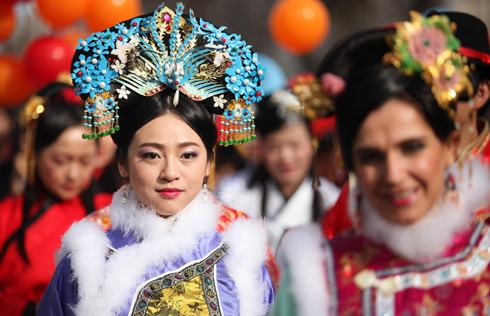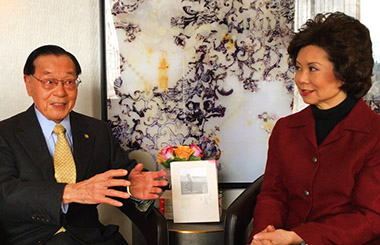APA hotel incident only tip of iceberg of Japan's ultra-right wing's history-revising
When asked about the controversy stirred up by the APA hotel chain's act, Japan's top government spokesperson Yoshihide Suga said "we need to tackle shared global challenges with a forward-looking view, rather than paying excessive attention to our unfortunate history."
What Japan does not want its victims to "pay excessive attention to" is, in fact, its ignominious wrongdoings during the war.
In 1994, Japan's then justice minister Shigeto Nagano was forced to resign amid protests from the Japanese people and Japan's neighboring countries, just three days after he called the 1937 Nanjing Massacre a fabrication and denied that Japan was guilty of aggression in WWII.
But now, some right-wing politicians are trying to attract attention and win support from right-wing voters by denying historical truths.
The government has, in addition, tightened its control over the contents of its history textbooks. An exhibition curated by the Women's Active Museum on War and Peace (WAM) in Japan shows that middle school history textbooks compiled by seven publishers in Japan mentioned the "comfort women" issue in 1997, while none of them mentioned the issue in 2012 copies of the textbooks.
A few politicians and high-ranking government officials even openly visited the notorious Yasukuni Shrine, which honors 14 Class-A convicted war criminals alongside 2.5 million Japanese war dead. The controversial shrine is predominantly regarded as a symbol of past Japanese militarism.
Meanwhile, those who exposed Japan's war atrocities were attacked and threatened by ultra-right wing forces in Japan. For example, WAM, as Japan's first museum focused on wartime sexual violence against women, constantly receives harassing calls and threatening emails.
Takashi Uemura, former journalist for The Asahi Shimbun, was attacked and defamed for reporting on the "comfort women" issue.
- Japan enters uncharted waters as emperor's abdication pondered
- Japan’s Foreign Aid Policy: Its Performance, Implications for China and Relevant Policy Options(No.176, 2016)
- Another sign of worrying revisionist trend in Japan
- Japan sets date for emperor's successor
- Top legislator vows greater exchanges with Japan's parliament



















